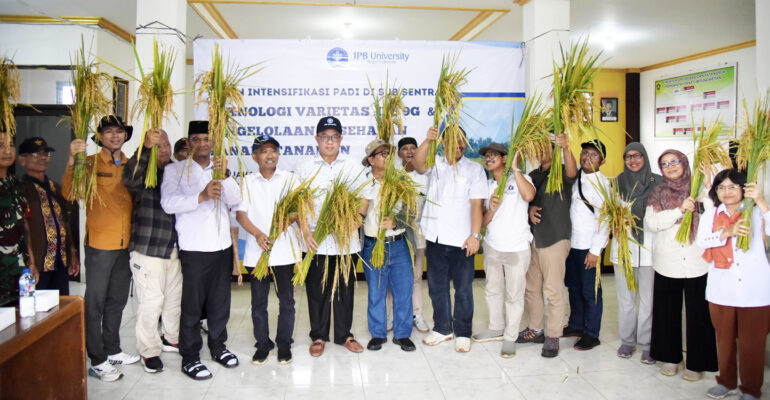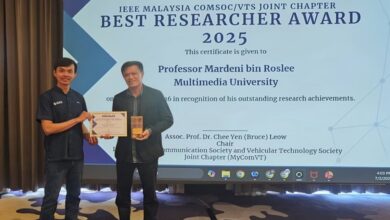Implementation of IPB 9G Rice to Address 100 Hectares of Dry Land in Pamijahan

In Cibitung Wetan Village within the Pamijahan Subdistrict of Bogor Regency, the implementation of the IPB 9G rice variety aims to tackle the challenges presented by dry land and water shortages affecting approximately 100 hectares in the region.
Project Overview
The project is being carried out in phases, starting with an initial planting on 0.75 hectares, with a subsequent harvest anticipated in three months. Plans are in place to expand the planting area to 10 hectares, ultimately aiming to cover 100 hectares within the next year.
Contributions to Food Security
Prof. Arif Satria, Rector of IPB University, emphasized that this initiative contributes significantly to national food security and agricultural development within Bogor through innovative agricultural practices. Increased adoption of the university’s innovative technologies is expected to enhance productivity for farmers and improve community welfare, particularly in rural regions facing water scarcity.
Previous Adoption of IPB 9G
The IPB 9G upland rice variety has previously been adopted in various regions across Indonesia, including areas of Sumatra, West Java, and Central Java. Prof. Satria noted the university’s commitment to collaborating with both central and local governments, highlighting the variety’s role in addressing ongoing irrigation challenges.
Adaptability and Technology
As an adaptable rice variety, IPB 9G can also be cultivated in wetland areas, having been introduced on 10 hectares in Cibitung Wetan and neighboring regions. The approach incorporates soil and plant health management technologies, which involve the application of organic amendments, optimal inorganic fertilization, reduced pesticide use, and bio-immunization through Plant Growth Promoting Rhizobacteria (PGPR) and endophytes.
Productivity Improvements
This integrated method has resulted in productivity improvements, increasing yields from 3.5 tons of dry unhusked rice per hectare to 5.0 tons, reflecting a 42.8% enhancement. The program has engaged 23 farmers and five recent graduates from IPB University’s Faculty of Agriculture.
Robust Technology for National Application
Prof. Suryo Wiyono, Dean of the Faculty of Agriculture, stated that the IPB 9G rice variety along with its associated soil and plant health management strategies represents robust technology suitable for national application. He highlighted the potential to boost productivity in sub-center regions, which account for approximately 60% of Indonesia’s rice-growing areas.
Local Perspectives
Kamaludin, Chief of Cibitung Wetan Village, acknowledged the positive effects of this initiative, indicating that the IPB 9G variety directly addresses local irrigation and dry land issues. He noted that the emphasis on soil and plant management has already led to improved harvest yields, expressing optimism for the growth of agriculture and the enhancement of welfare for local farmers.
(Source: IPB University News)




